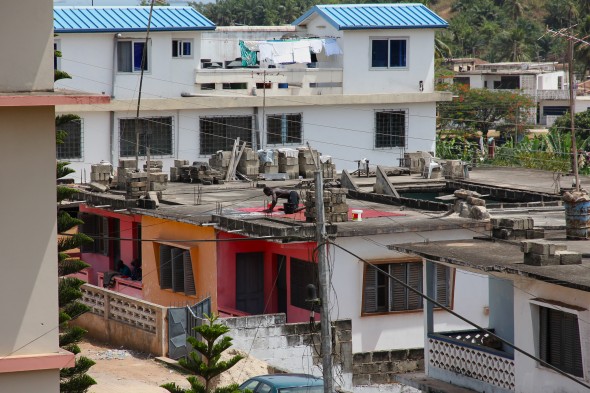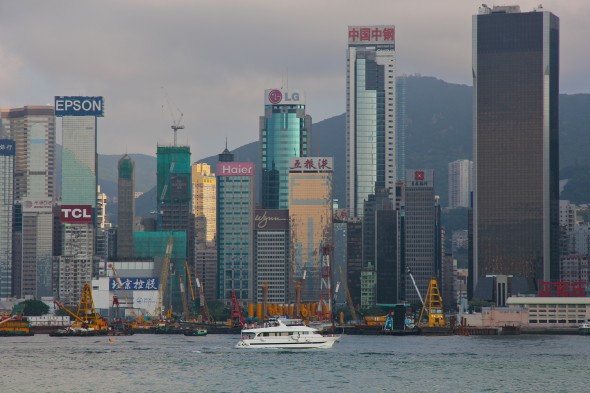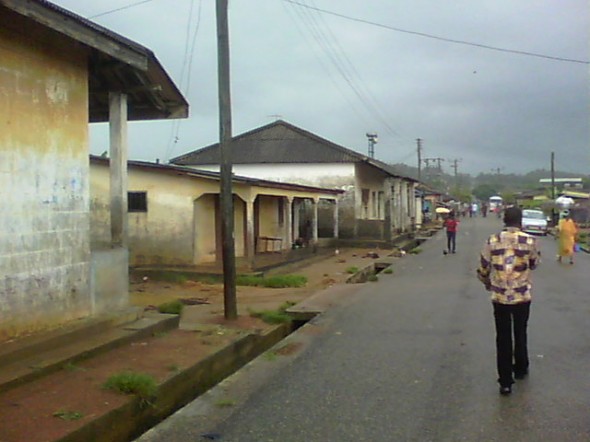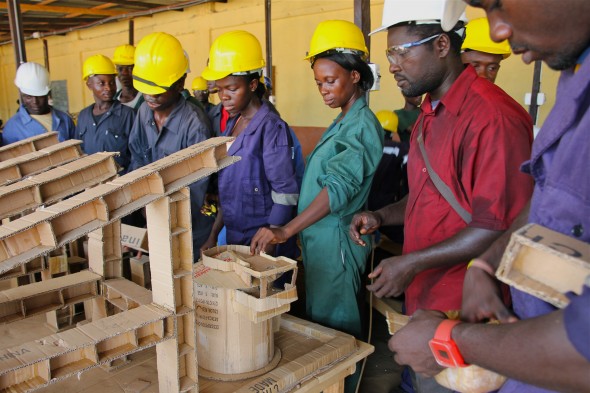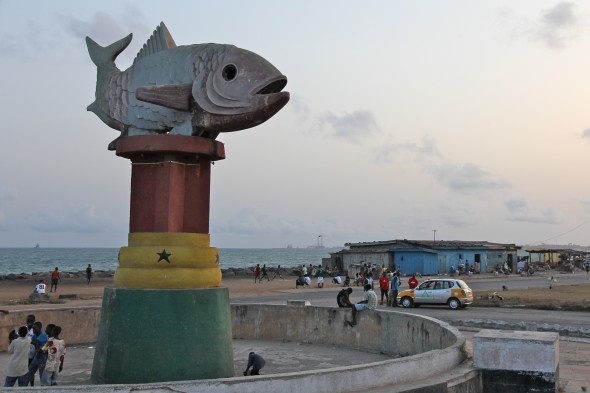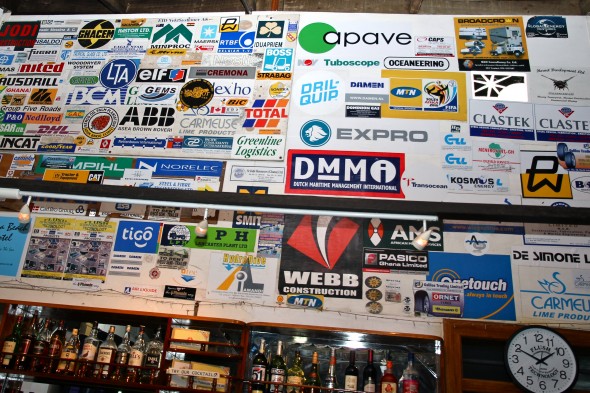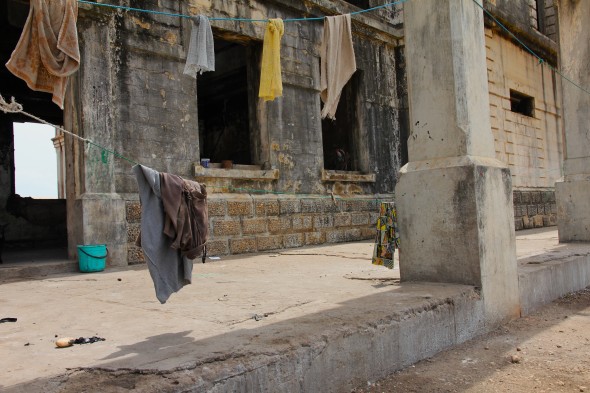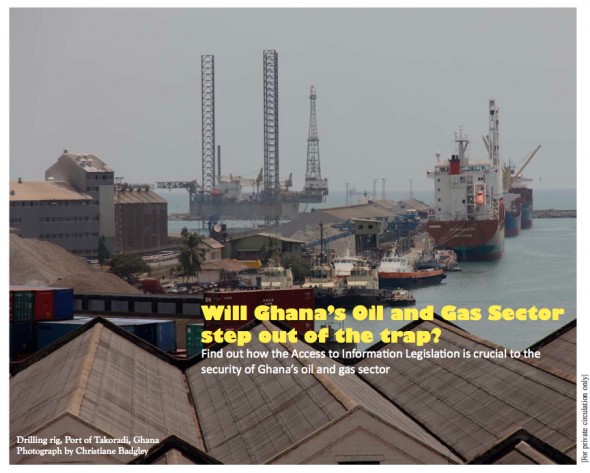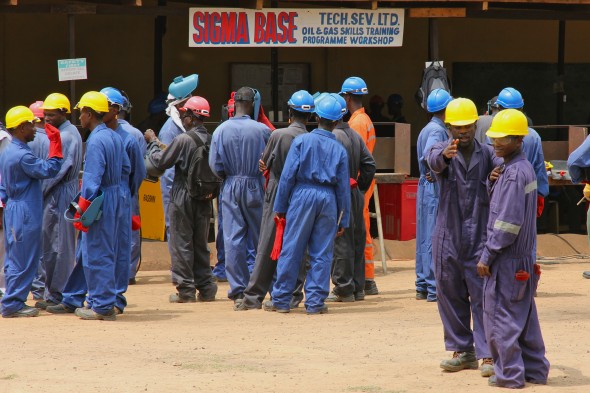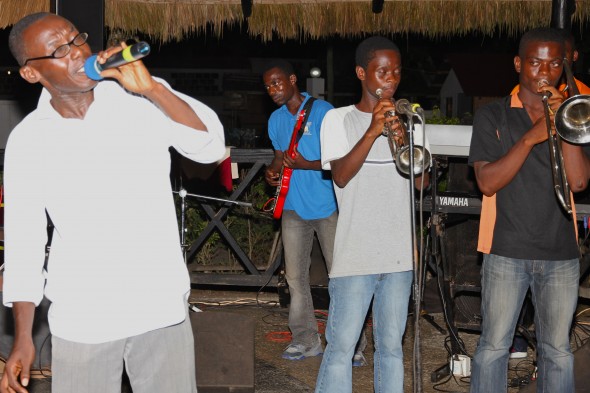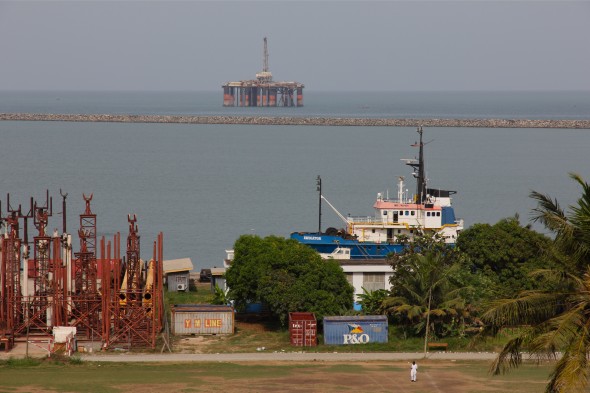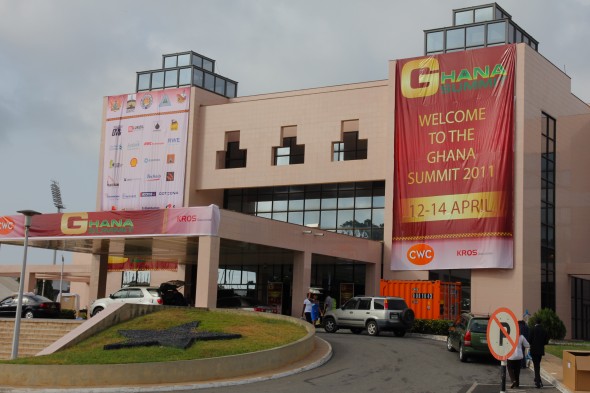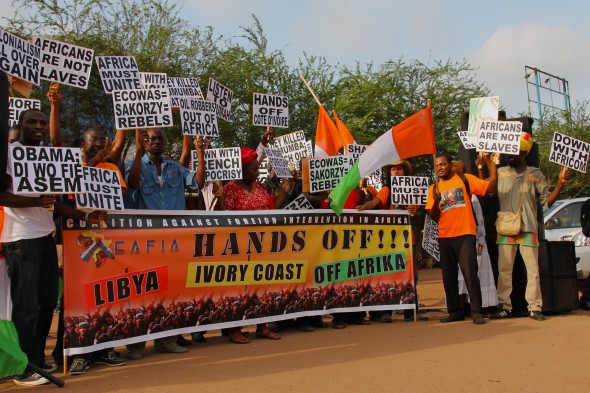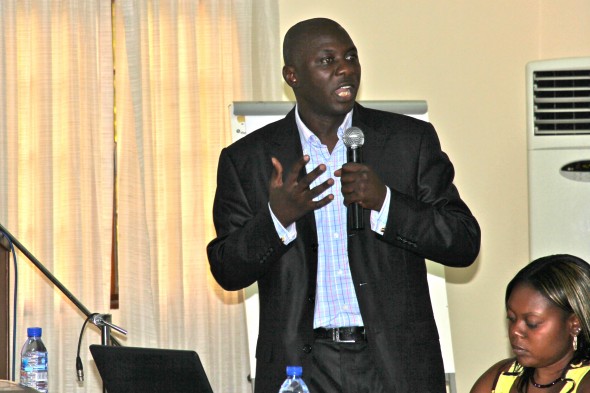Can Ghana benefit from Norway’s oil experience?
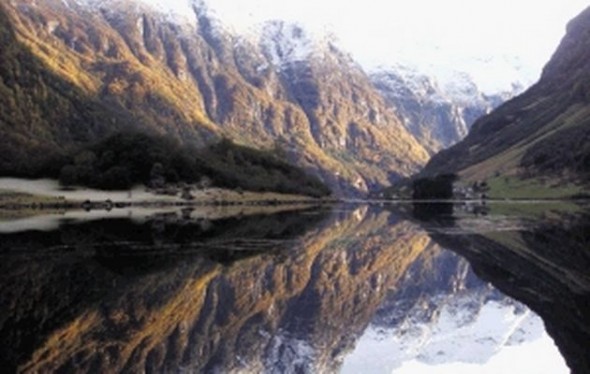
Iraqi-born geologist Farouk al-Kasim predicted Norway's big oil find and is one of the pioneers of the country's oil policy. Photo: Sunday Times, South Africa
There’s a lot of talk in Ghana about Norway, the country that has made oil work for its citizens. Ghana is looking to the Norwegian experience for insights into how best to manage its oil resources. The Norwegian Agency for Development Cooperation has an Oil for Development Program in Ghana that seeks to develop long-term institutional cooperation in the oil sector. Through this program, the Norwegian government is providing assistance in competence and capacity building within resource management, revenue management and environmental management.
Africa’s economy rebounds without jobs
What happens when an economy grows rapidly without generating jobs?
Yesterday I was talking about Ghana’s economy with a Ghanaian who is doing business in Hong Kong. On paper things are booming:
Ghana’s economic growth accelerated to an annual 23 percent in the first quarter as the West African nation began producing oil for export, the country’s statistics agency said….Expansion was led by a 162 percent jump in mining and quarrying, which includes the oil industry, while agriculture grew 39.2 percent. Ghana began production of oil from its offshore Jubilee field in December. Output is about 70,000 barrels a day and may climb to 120,000 next month, according to the field’s operator, London-based Tullow Oil Plc.
From Takoradi to Hong Kong…
I’m in Hong Kong and China for two weeks doing research. My first day here and I’ve already met someone from Takoradi and chatted about Ghana’s oil.
Small world. More to follow…
Jubilee’s oil…Bonyere’s gas: what’s going on?
Today I’m posting an article by Stephen Yeboah on the proposed Bonyere gas project. Yeboah, a Ghanaian development practitioner who focuses on the extractive industries, recently participated in a training program on oil and gas reporting funded by Revenue Watch Institute, Thomson Reuters Foundation and the International Institute of ICT Journalism (Penplusbytes).
First some background:
The Jubilee oil development project includes plans to pipe the gas released by the drilling to shore where it will be processed to generate electricity and eventually lead to further industrial development.
Oil jobs for all?
Will the oil industry bring jobs to Ghana’s Western Region? And when job opportunities arise will locals be competitive?
If Ebow Haizel-Ferguson has his way, the answer to both questions will be yes. Haizel-Ferguson is one of the founders of Sigma-Base Technical Services, a job training center in Sekondi-Takoradi. My latest video dispatch from Ghana features Haizel-Ferguson and Sigma-Base students. It is online at the Pulitzer Center: http://pulitzercenter.org/video/ghana-oil-industry-jobs
New video online!
The Center for Public Integrity and the Pulitzer Center have posted the first of my short video dispatches on Ghana’s new oil industry: http://www.iwatchnews.org/2011/06/10/4859/fishing-and-offshore-oil-industry-delicate-imbalance
There’s a dedicated “Oil City Stories” page at the Pulitzer Center and from there you can access articles and videos: http://pulitzercenter.org/projects/ghana-oil-city-hopes-challenges-takoradi
Please visit these pages and add comments, tweet, like, share, etc.! Increased traffic and comments help me convince funders to continue supporting this work. New videos will be out soon and we’re working on a longer film project. It’s crucial to keep up the momentum!
Thanks for your interest and support.
It’s been awhile…
Days turn into weeks and I haven’t posted a thing. I guess I’ve got those oil blues…
Well, that and I have been editing video and preparing an article for publication. If all goes as planned, new material should be online in the next few days. I’ve also been to London to interview Stuart Wheaton, Ghana Development Manager for Tullow Oil, and Romain Chancerel, Project Manager for the Global Initiative for West and Central Africa (GIWACAF). GIWACAF is a public-private partnership working to develop and enhance oil spill response capacity in the Gulf of Guinea region.
President Mills announces infrastructure development plans for Western Region
During a visit to Sekondi President Mills announced that 10% of Ghana’s oil revenues would not be enough for all the work that must be done in the Western Region. Those are words intended to please the chiefs of the Western Region who demanded that 10% of Ghana’s oil revenues to regional development. Their demand was thrown out of parliament and local leaders have vowed to make this an election issue.
Earmarking 10% of the country’s oil revenues for the Western Region is complicated: What happens when drilling begins in other regions and what precedent does this set for other industries, like mining? But no one can argue that the Western Region is not in need of massive infrastructure improvements. And, some say, the 10% demand provides Ghana’s leaders to consider the problem of resource-rich areas that have never fully benefited from their resources (in the gold mining sector, most notably).
Ghana’s oil: Why access to information is crucial
The Commonwealth Human Rights Initiative (CHRI) Spring 2011 newsletter is out and the cover story is devoted to Ghana’s new oil industry.
Adwoa Adu Ampofo, writing from the Accra CHRI office, stresses the urgent need for Ghana to pass “Access to Information” legislation:
Oil City Stories at the Pulitzer Center!

Sekondi-Takoradi, Ghana's "Oil City." The giant fish monument at the Sekondi beachfront roundabout is a testament to the importance of fishing for this town. It seems fitting that the fish appears to be gasping for breath as overfishing and now the oil industry take their toll on local livelihoods. Photo by Christiane Badgley
The Pulitzer Center on Crisis Reporting has launched a project page for Oil City Stories, my work in Ghana. Please visit the page, subscribe, like it on facebook and retweet! I need people who care about these issues to make their voices heard — getting the word out helps me secure the funding I need to continue this work.
I haven’t been posting much the past few days as I’m editing photos and videos. Starting in a few days the videos will go up on the websites of The Center for Public Integrity and The Pulitzer Center, my partners on the Ghana work.
With these videos, I give voice to people and concerns rarely heard in U.S./Western media coverage of the oil industry in Africa. We read about the oil industry in the business pages (or in articles focused on the business side of things) and then we read about MEND operations in the Niger Delta. We rarely hear anything about what happens between the signing of lucrative deals and the rebellions, yet if we want to understand (and avoid) the so-called “resource curse” this is where we need to focus our attention.
Between — it’s where things happen and it’s where I’m working. Stay tuned and please spread the word!
Gulf of Guinea: The new Wild West
Reuters ran a story several months ago on the key political risks of doing business in the Gulf of Guinea.
I posted the article then. The article has been updated and I’m putting it up once again. As I said when I originally posted this article, most coverage of the extractive industries (and cocoa, in the case of this article) is in the business pages and basically boils down to dollars and cents. What are the rewards, what are the risks?
The human side of the story is only of interest insofar as it impacts business and the investment climate. Ditto for the environment. What’s noteworthy here is that there is absolutely no mention of the the environmental risk of rapidly expanding drilling and mining. Kind of crazy when you consider that environmental mayhem will certainly lead to social unrest. Even from an investment perspective, one might think (wish?) that environmental concerns would be part of the risk assessment.
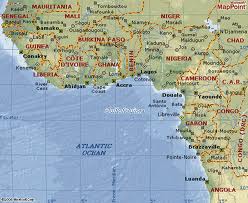 DAKAR May 3 (Reuters) – A stretch of West Africa’s coast spanning more than a dozen countries, the Gulf of Guinea is a growing source of oil, cocoa and metals to world markets.
DAKAR May 3 (Reuters) – A stretch of West Africa’s coast spanning more than a dozen countries, the Gulf of Guinea is a growing source of oil, cocoa and metals to world markets.
But rising rates of piracy, drug smuggling, and political uncertainty in an area ravaged by civil wars and coups have made it a challenging destination for investors seeking to benefit from the massive resources.
The Gulf of Guinea runs from Guinea on Africa’s northwestern tip to Angola in the south and includes Nigeria, Ghana, Ivory Coast, Democratic Republic of Congo, and Cameroon.
Sigma-Base: Getting Ghanaians ready for oil industry jobs
Sigma-Base Technical Services, a private job-training center in Takoradi, recently held a graduation ceremony (or a “passing-out ceremony” as it’s called here) for its first class of 913 trainees. The students, trained in welding, pipefitting, electrical work or specialized construction, were participants in a new program intended to create a qualified labor pool for Ghana’s new oil industry.
With the Sigma-Base training under their belts, the graduates can pursue jobs with any number of companies servicing the oil and gas sector.
“We are already qualified to perform 60% of the jobs in the oil industry,” says Ebow Haizel-Ferguson, the Corporate Affairs and Community Relations Director at Sigma-Base. He disputes claims from officials that Ghanaians will not be qualified for wide-scale oil and gas employment before 2020.
Ghana gets the VICE treatment
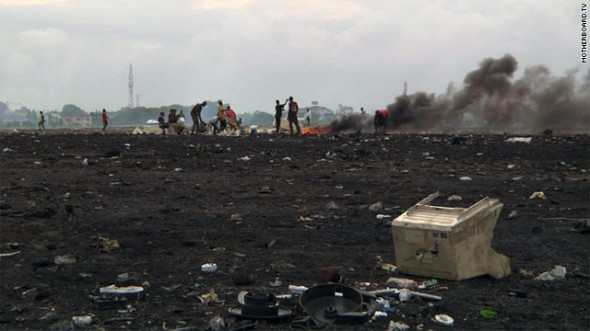
Inside the criminal world of Ghana's e-mail scam gangs. Brought to you by Vice Magazine/Motherboard.tv via CNN
Ghana is doing extremely well by African standards. Of course “by African standards” means there are dirt roads leading past the brand-new, gold-columned presidential palace, and roughly 1% of the country are blowing their country’s GDP at bars with $50 cover charges while the other 99 are selling bags of water at stop lights. They have huge mineral reserves and lots of foreign money invested in their extraction, all of which ends up concentrated in the hands of the president, his cabinet, and whichever of their cousins they’re getting along with at the time. – Vice via CNN
Hey, that’s some hard-hitting commentary. Never mind that there are no dirt roads leading to the “presidential palace,” or that 99% of Ghanaians do not sell bags of water at the side of the road. What counts is attitude and this writer is sure one fierce social critic.
Vice Reporter Thomas Morton did his hipster “journalism” number in Ghana last summer and in the process managed to outrage many of the country’s bloggers, a demographic that ought to constitute a fan base for Vice in Ghana.
Deepwater Horizon: Can it happen again?
I interviewed the Ghanaian EPA’s “focal person for oil and gas” Friday afternoon in Takoradi.
I asked him about the Deepwater Horizon disaster and what Ghanaian authorities believe necessary to reduce the chances of a similar event occurring here. I wanted to hear about policy directives and stepped-up enforcement of existing laws, for example. Instead, I heard that the Deepwater Horizon accident was “unique” and that something like it “could never happen in Ghana.”
Between the cheerful confidence of the EPA official and the “we’ve got safety under control” assurances of speakers at the Ghana summit, you could be forgiven for thinking that things have dramatically changed in the last year. Things have changed, but unfortunately it appears that too much remains the same.
The Ghana Summit 2011
The oil and gas industry trade show rolled into town this week. For three days conference delegates sat through strategy sessions, chatted with exhibitors and attended networking coffee sessions, lunches, gala cocktail parties and dinners. The halls of the Accra conference center were filled with exhibitors stands: from Tullow Oil, lead partner in Ghana’s Jubilee Field, to distributors of work boots and catering services, everyone wanting in on Ghana’s oil business was here.
Hands off Africa!
That was the message in the streets of Accra on April 12th.
As the French TV coverage of the event put it, “people in many African countries, including Ghana, do not approve of the French action in Ivory Coast.”
Report card: Ghana oil gets a “C”
The report card is out and Ghana’s overall grade is a “C.”
The government (executive branch), the parliament, the donor partners, the oil and gas companies and civil society all received average grades of “C” (fair). As Mohammed Amin Adam, National Coordinator of the Civil Society Platform, explained, the objectives of the readiness report and the accompanying report card are to acknowledge progress made to date and to encourage renewed efforts moving forward. That’s why, according to Amin, the grading system was fairly easy.
Report card time!

Ghana’s oil industry is getting its first term report card! The Civil Society Platfrom on OIl and Gas will hand out the grades Monday morning in Accra. The media is invited and I’ll be there to find out who has been a good student and who needs to show more effort.
A great day for oil!
Transocean, remember them?
Transocean Ltd. had its “best year in safety performance” despite the explosion of its Deepwater Horizon rig that left 11 dead and oil gushing into the Gulf of Mexico, the world’s largest offshore-rig company said in a securities filing Friday.
Accordingly, Transocean’s executives received two-thirds of their target safety bonus. Safety accounts for 25% of the equation that determines the yearly cash bonuses, along with financial factors including new rig contracts
The payout contrasts with that for 2009, when the company withheld all executive bonuses after incurring four fatalities that year “to underscore the company’s commitment to safety.”
Oil City: Where are the Jobs, pt. 2
“Oil City,” Ghana’s new Wild West. There may not be many oil industry jobs here for the moment, but the fortune seekers, schemers and scammers have arrived and there’s snake oil for sale on every corner.
Here’s part of one email I recently received (I’ve removed names and numbers):
I was offered a vacancy by an engineer whom does recruiting for jubilee oil rig (tel +233-xxx-xxx-xxx Mr. xxxxx) he told me to obtain visa etc we had to pay in 490 us dollars via western union and that he would get back to me he now is asking for a further 1699 us dollars for some documentation levy payable to Ghana Maritime labour law it is for the certification of employment and travel documents under GMA prior before delivery as a new employee joining the Ghana jubilee oil field.
Union Man: Where are the jobs?
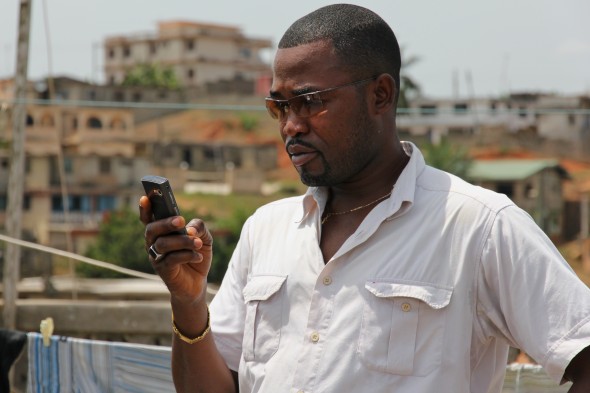
Francis Sallah, Regional Industrial Relations Officer, Ghana Trades Union Congress. Photo by Christiane Badgley
Nothing seems to capture the public imagination like oil. The real impact of the oil industry on local communities in Africa is in plain sight from Nigeria to Chad to Equatorial Guinea and beyond, but this hardly dampens public enthusiasm for the black gold.
In Ghana, things were no different. When Ghanaians found out there was oil off their coast, a sense of excitement spread across the country. Optimistic and at times unrealistic statements from various company officials and ministries added to expectations. Continue reading . . .
Western Region: We will stand by our oil revenue petition
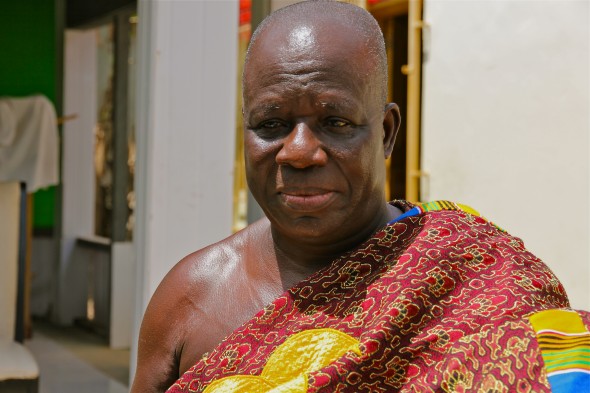
Awulae Annor Adjaye, President of the Western Nzema Traditional Council, told us in a recent interview that the Western Region will continue to press for a share of Ghana's oil revenues.
Ghana may have passed a Revenue Management Bill that has been largely praised (albeit with some caveats) both at home and abroad, but that does not mean that all the contentious issues have been resolved. The Western Regional leaders have no intention of abandoning their claim for a share of the country’s oil wealth and this is likely to be a major sticking point moving forward. Continue reading . . .
Takoradi: The BBC and me…
Driving around Takoradi we noticed BBC banners up at busy intersections and roundabouts. “Oil: a blessing or a curse?” the banners asked. Funny, isn’t it, how we keep asking this question, when time after time oil production follows the same cue cards.
A new country gears up to join the petroleum producers’ club and the president along with a few top ministers loudly proclaim that this time, here, oil will be a blessing and not a curse. Promises are made, speeches are broadcast and then the oil ends up being a curse – at least for those at the bottom rungs of society, the people who desperately need jobs and pin all their hopes on the elusive black gold.
Oil isn’t a blessing, but it doesn’t need to be a curse, either. Seems like we need to move beyond this supernatural, good v. evil framework that really doesn’t move anything forward. Continue reading . . .

